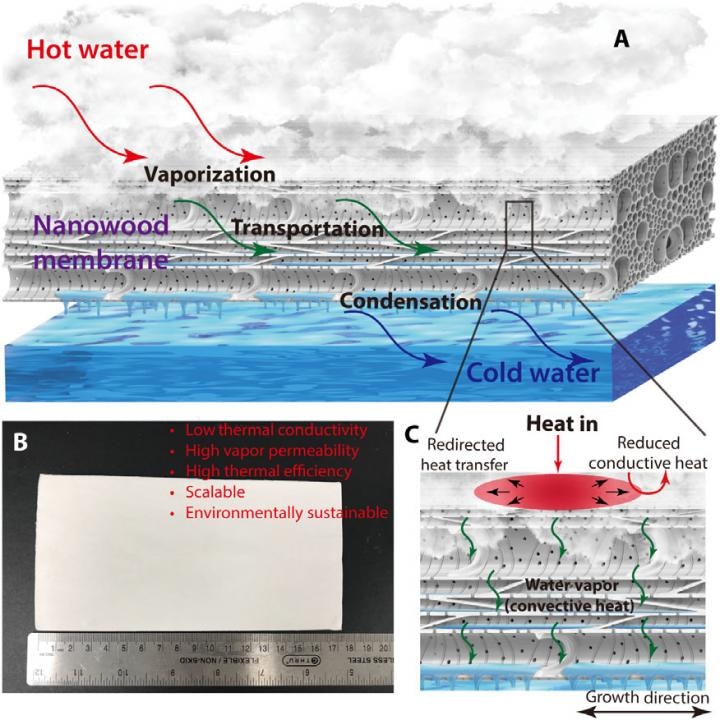Aug 5 2019
A Princeton University-led research team, inspired by the complex system of water circulating in a tree, has discovered how to utilize a thin slice of wood as a membrane via which water vapor can evaporate, leaving behind salt or other impurities.
 Schematic of the process of using the new wood membrane to distill water. (Image credit - T. Li, University of Maryland)
Schematic of the process of using the new wood membrane to distill water. (Image credit - T. Li, University of Maryland)
A majority of membranes that are used to distill fresh water from salty are composed of polymers, which are taken from fossil fuels and are also challenging to recycle. On the other hand, the wood membrane is a more sustainable material, and according to the scientists, has excellent porosity, which boosts water vapor conveyance and prevents loss of heat.
In a paper published in the August 2nd issue of the journal Science Advances, the scientists explain that the new membrane they developed works 20% better than existing membranes in water distillation tests.